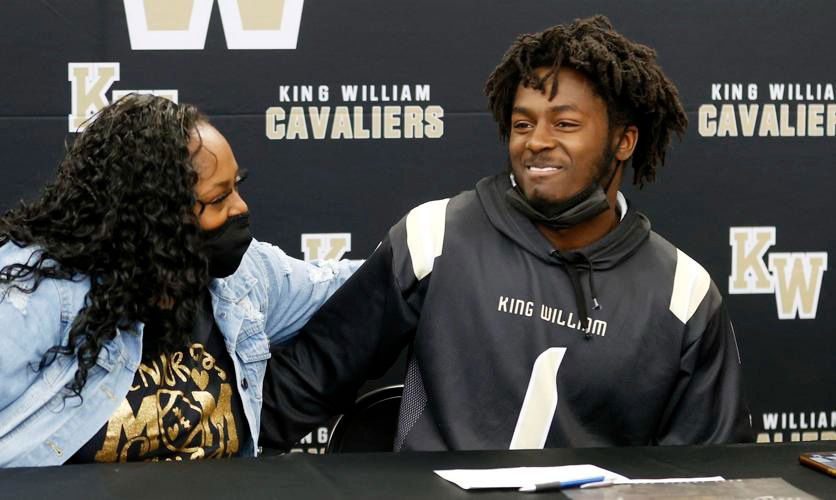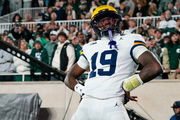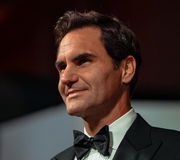

Demond Claiborne is a driven young running back whose story is as much about determination as it is about talent. Born on October 9, 2003 in Aylett, Virginia, he carved his path from high-school standout to a key player for the Wake Forest Demon Deacons. His journey hasn’t been smooth, but thanks to his family’s sacrifice and his own grit, he’s ready for bigger things. At the heart of it all stands his mother, Tomeka Claiborne, whose unrelenting work ethic lit the fire under him. Demond’s story isn’t just about football it’s about respect, resilience, and repayment for the ones who gave so much.
Watch What’s Trending Now!
Who are Demond Claiborne’s parents?
Demond Claiborne’s mother is Tomeka Claiborne, a single parent who raised five boys largely on her own. According to profiles, she juggled three jobs, at a DoubleTree, a Sheraton, and JCPenney to keep her sons fed and focused. She stands as the pillar of the family: the one who never faltered when the rest of the world seemed to push back. Her son Demond observed her early morning starts and her late-night shifts, and he decided early on he’d match her effort. While the father is described as absent in those accounts, it’s Tomeka who filled both roles and carried the family forward. Demond is the second-oldest of the five brothers: his twin, Damien Claiborne, and brothers Monta, Roshaun, and Romell are part of that circle. Their careers aren’t publicly detailed, but through their mother’s example they’ve been shaped into young men with purpose.
ADVERTISEMENT
What ethnicity are Demond Claiborne’s parents?
Tomeka Claiborne is African-American and American by nationality, based in Virginia. The publicly available sources don’t list further ancestry beyond her being an American woman navigating life in the U.S. Her sons identify as African-American, and so the family’s ethnicity is broadly within the African-American community.
ADVERTISEMENT
Does Demond Claiborne have any siblings?
Yes, in fact, Demond has four brothers, making five sons in total under their mother’s care. He has a twin brother Damien (the second-oldest pair), and three younger brothers: Monta, Roshaun, and Romell. Demond and Damien share a particularly close bond, they navigated childhood together, and Damien often features in stories of Demond’s upbringing.
Top Stories
Greg Biffle’s $4M Worth Prized Possession Still Without a Buyer Leaves NASCAR Fans Heartbroken

LIV Golf Braces for Another Possible Exit in Wake of Brooks Koepka Departure

Sean Payton Announces Retirement Plans as Broncos HC Demands Improvement From Bo Nix & Co. Before Playoffs

Biff Poggi All But Confirms Bryce Underwood’s Michigan Future After Announcing His Own Departure

Roger Federer Draws Criticism from Swiss Government Chief for Tourism Boom in Country

Amanda Balionis Confirms New Relationship Ending Months of Rumors

The younger trio of Monta, Roshaun, and Romell grew up watching their two elder brothers’ grind with admiration and sometimes with friendly competition. Having siblings meant the Claiborne household was always busy. Their mother, juggling multiple jobs, raised the five boys with the idea that each one could be better than yesterday. While detailed public information on each brother’s individual pursuits is limited, all of them benefit from the same foundation: hard work, accountability, and family unity.
ADVERTISEMENT
The motto that drives Demond Claiborne
“If she’s working three jobs, I’m going to do something that day to help me match up to the amount of hours she puts in.” That quote from Demond encapsulates the mission that fuels him every time he steps on the field. He saw his mother’s relentless hustle, and he refuses to let her effort go unreturned. The motto isn’t about passing her, it’s about keeping pace, making sure every carry, every training session, every school assignment reflects at least a shadow of what she’s sacrificed.
ADVERTISEMENT

ADVERTISEMENT
Inside Demond Claiborne’s Relationship with His Parents
Demond’s relationship with his mother, Tomeka, is the axis around which his story spins. He refers to her as his backbone, “my mom did everything for me and my brothers,” he’s said. Growing up in Aylett, Virginia, he watched her handle the dual roles of mother and father, managing household needs and job demands while still cheering him on at football games.
The father’s presence is minimally described, making Tomeka the primary parental figure. Demond didn’t just pick up his mother’s values, he internalised them. On the field, he’s often asked why he runs the way he does. The answer comes simply: he runs hard because he inherited his mother’s will. At home, he mirrors her discipline in his routine: training, school, recovery. They stay in sync because they share the same work-ethic DNA. The mutual respect is deep: she sees him chasing his dream; he sees her earning theirs.
ADVERTISEMENT
ADVERTISEMENT
ADVERTISEMENT

